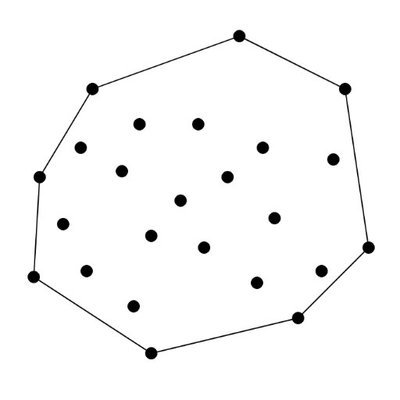結果
| 問題 | No.1031 いたずら好きなお姉ちゃん |
| コンテスト | |
| ユーザー |
 kcvlex kcvlex
|
| 提出日時 | 2020-04-18 00:10:21 |
| 言語 | C++17 (gcc 15.2.0 + boost 1.89.0) |
| 結果 |
WA
|
| 実行時間 | - |
| コード長 | 3,684 bytes |
| 記録 | |
| コンパイル時間 | 3,087 ms |
| コンパイル使用メモリ | 148,128 KB |
| 最終ジャッジ日時 | 2025-01-09 20:54:53 |
|
ジャッジサーバーID (参考情報) |
judge3 / judge1 |
(要ログイン)
| ファイルパターン | 結果 |
|---|---|
| sample | AC * 3 |
| other | AC * 3 WA * 50 |
ソースコード
#include <limits>
#include <initializer_list>
#include <utility>
#include <bitset>
#include <tuple>
#include <type_traits>
#include <functional>
#include <string>
#include <array>
#include <deque>
#include <list>
#include <queue>
#include <stack>
#include <vector>
#include <map>
#include <set>
#include <unordered_map>
#include <unordered_set>
#include <iterator>
#include <algorithm>
#include <complex>
#include <random>
#include <numeric>
#include <iostream>
#include <iomanip>
#include <sstream>
#include <regex>
#include <cassert>
#include <cstddef>
#define endl codeforces
#define ALL(v) std::begin(v), std::end(v)
#define ALLR(v) std::rbegin(v), std::rend(v)
using ll = std::int64_t;
using ull = std::uint64_t;
using pii = std::pair<int, int>;
using tii = std::tuple<int, int, int>;
using pll = std::pair<ll, ll>;
using tll = std::tuple<ll, ll, ll>;
template <typename T> using vec = std::vector<T>;
template <typename T> using vvec = vec<vec<T>>;
template <typename T> const T& var_min(const T &t) { return t; }
template <typename T> const T& var_max(const T &t) { return t; }
template <typename T, typename... Tail> const T& var_min(const T &t, const Tail&... tail) { return std::min(t, var_min(tail...)); }
template <typename T, typename... Tail> const T& var_max(const T &t, const Tail&... tail) { return std::max(t, var_max(tail...)); }
template <typename T, typename... Tail> void chmin(T &t, const Tail&... tail) { t = var_min(t, tail...); }
template <typename T, typename... Tail> void chmax(T &t, const Tail&... tail) { t = var_max(t, tail...); }
template <typename T> const T& clamp(const T &t, const T &low, const T &high) { return std::max(low, std::min(high, t)); }
template <typename T> void chclamp(T &t, const T &low, const T &high) { return t = clamp(t, low, high); }
template <typename T> T make_v(T init) { return init; }
template <typename T, typename... Tail> auto make_v(T init, std::size_t s, Tail... tail) { auto v = std::move(make_v(init, tail...)); return vec<decltype(v)>(s, v); }
template <typename T, std::size_t Head, std::size_t ...Tail> struct multi_dem_array { using type = std::array<typename multi_dem_array<T, Tail...>::type, Head>; };
template <typename T, std::size_t Head> struct multi_dem_array<T, Head> { using type = std::array<T, Head>; };
template <typename T, std::size_t ...Args> using mdarray = typename multi_dem_array<T, Args...>::type;
namespace init__ { struct InitIO { InitIO() { std::cin.tie(nullptr); std::ios_base::sync_with_stdio(false); std::cout << std::fixed << std::setprecision(30); } } init_io; }
vec<ll> cnt_l(const vec<ll> &p) {
ll n = p.size();
vec<ll> ret(n), ord(n);
std::iota(ALL(ord), 0);
std::sort(ALL(ord), [&](ll i, ll j) { return p[i] > p[j]; });
std::set<ll> used;
used.insert(n);
auto minv = [&] {
ll cur = n;
vec<ll> idx_v;
for (ll i = 0; i < n; i++) {
ll e = p[i];
if (e < cur) {
cur = e;
idx_v.push_back(i);
}
}
return idx_v;
}();
for (ll idx : ord) {
ll r = *used.lower_bound(idx);
auto itel = std::upper_bound(ALL(minv), idx);
auto iter = std::upper_bound(ALL(minv), r);
ret[idx] = std::distance(itel, iter);
}
return ret;
}
int main() {
ll n;
std::cin >> n;
vec<ll> p(n);
for (ll &e : p) {
std::cin >> e;
e--;
}
auto lv = cnt_l(p);
std::reverse(ALL(p));
auto rv = cnt_l(p);
std::reverse(ALL(p));
std::reverse(ALL(rv));
ll ans = 0;
for (ll i = 0; i < n; i++) ans += (lv[i] + 1) * (rv[i] + 1) - 1;
std::cout << ans << '\n';
return 0;
}
